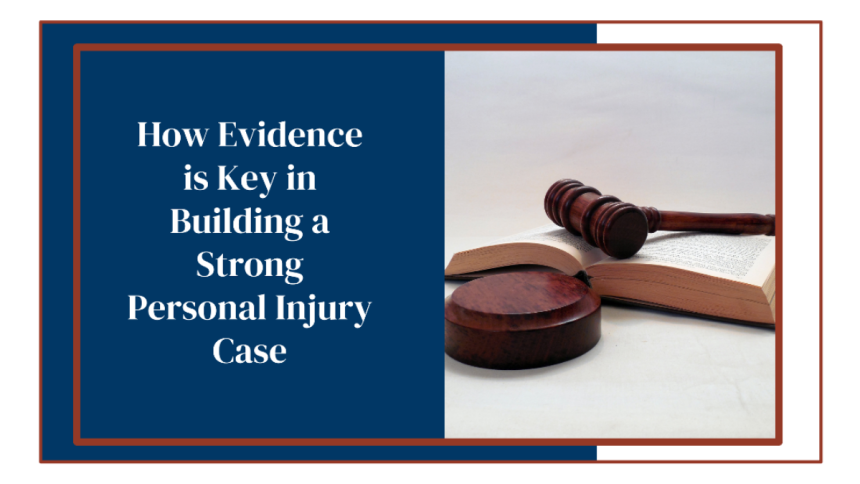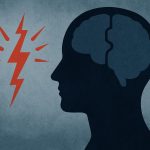When it comes to personal injury cases, the foundation of a successful claim rests on solid, compelling evidence. If you’ve suffered an injury due to someone else’s negligence, you might be worried about proving your case and securing the compensation you deserve.
This article aims to address these concerns by highlighting the pivotal role of evidence in constructing a robust personal injury case. It provides practical advice on gathering and preserving evidence, along with illustrating how legal professionals can assist throughout the process.
What is Evidence in Legal Terms? In legal terms, evidence refers to any type of proof legally presented at trial through witnesses, records, documents, etc., to convince the judge or jury of an argument. In personal injury cases, this proof is essential for establishing the liability of the defendant and determining the extent of the plaintiff’s damages.
Why is Evidence Crucial in Personal Injury Cases?
In personal injury cases, evidence is not just important; it’s the backbone of the entire legal process. Here’s why:
Establishes Liability
Evidence is the cornerstone for proving fault or liability in personal injury cases. Without evidence to substantiate claims, it becomes challenging to hold the defendant accountable. If you’ve been hurt in an accident – like a slip and fall, a car wreck, or because of a doctor’s mistake – you need solid proof to show who’s to blame.
Such evidence may include eyewitness testimonies, photographs, or expert opinions. Presenting compelling evidence of the other party’s negligence strengthens your case and establishes their responsibility.
Quantifies Damages
When you’re hurt, it’s not just about physical pain. You also suffer emotionally, face financial struggles, and deal with long-term effects. To get a fair deal, you need proof of what you’ve been through. Here’s where evidence comes into play: medical records, bills, and expert opinions.
They help show how bad your injuries are, what treatment you need, and how much it’ll cost. This proof is key to making sure you get the money you need to cover past, present, and future expenses – like medical bills, lost pay, rehab, and pain.
Supports Credibility
In the realm of personal injury law, credibility is paramount. Without credibility, even the strongest arguments may fall flat. Evidence helps prove the plaintiff’s claims by providing solid facts to back them up.
Things like witness statements, medical records, and other evidence make the plaintiff’s story more real and believable to judges, juries, and the other side. If you can show a clear and consistent picture of what happened and how it affected you, you’ll come across as more credible and make your case stronger.
Influences Settlements
Many personal injury cases get resolved without going to court. However, the outcome usually depends on how strong the evidence is. If you have solid proof, you’re more likely to get a better deal from insurance companies or the other side.
They don’t want to take risks by going to trial, so they’re more willing to settle. That’s why having strong evidence is key – it helps you win in court and gets you a good settlement too.
Importance of Early Legal Intervention
Engaging an attorney early in the process is crucial for several reasons. Immediate legal intervention allows for the prompt gathering and preservation of evidence, which is especially important in cases where evidence may be lost or degraded over time. Witness memories can fade, physical evidence can be altered, and documents can be misplaced.
By involving a legal professional from the outset, a personal injury attorney SC, you ensure that evidence is collected while it is still fresh and intact. Early legal intervention also allows for a more thorough investigation, giving attorneys ample time to build a strong, well-supported case. This proactive approach can significantly enhance the chances of a favorable outcome, whether through settlement negotiations or in court.
6 Types of Evidence in Personal Injury Cases
| Type of Evidence | Importance | Example |
| Medical Records and Bills | Proves the extent of injuries and medical costs | Hospital records, invoices, treatment plans |
| Witness Testimonies | Corroborates the plaintiff’s account | Statements from people who saw the accident |
| Photographs and Videos | Provides visual proof of the incident and injuries | Photos of the accident scene, video footage of the event |
| Expert Testimonies | Offers professional insights and validates claims | Opinions from medical experts, accident reconstruction proficients |
| Police Reports | Provides an authoritative account of the incident | Official reports detailing the accident |
How to Gather and Preserve Evidence
Steps to Take Immediately After the Incident
- Seek Medical Attention: Prioritize health and create medical records.
- Contact Authorities: File a police report if applicable.
- Document the Scene: Take photographs and videos.
- Gather Witness Information: Collect the names and contact details of any witnesses.
Long-Term Evidence Preservation
- Maintain a Journal: Document pain, emotional distress, and daily challenges post-incident.
- Keep All Records: Store all medical bills, repair invoices, and any other relevant documents.
- Follow Legal Guidance: Adhere to advice from legal counsel to ensure evidence remains admissible.
The Role of Legal Professionals in Evidence Management
1. Evidence Collection
Lawyers are essential in collecting evidence due to their extensive knowledge and resources. They know what’s needed and how to get it. They gather key documents like medical records, police reports, and witness statements to support a claim.
2. Evidence Preservation
The preservation of evidence is another critical area where legal professionals excel. Lawyers are well-versed in the legal standards for maintaining evidence in a manner that keeps it admissible in court. They protect physical evidence and store digital evidence securely. This helps prevent disputes over its authenticity in court.
3. Expert Coordination
A significant advantage of having an attorney is their ability to coordinate with experts. Legal professionals find experts who can provide key insights and testimony to support the case. Experts clarify complex issues, add credibility, and explain details that a layperson can’t.
4. Strategic Presentation
Presenting evidence effectively is an art that attorneys master through years of practice. Lawyers know how to present evidence to build a strong case. They understand legal procedures and highlight key evidence to support their client. This helps the judge or jury see the case in a favorable light.
Challenges in Evidence Collection and How to Overcome Them
Common Challenges
- Evidence Tampering: Ensuring evidence is not altered or destroyed.
- Memory Fading: Witness recollections can fade over time.
- Access to Evidence: Sometimes, crucial evidence is in the hands of third parties.
Overcoming Challenges
- Prompt Action: Swift collection and preservation of evidence.
- Legal Subpoenas: Using legal tools to obtain necessary evidence from third parties.
- Professional Insight: Hiring professionals to validate and interpret evidence.
A Final Word
For anyone involved in a personal injury case, understanding the importance of evidence is paramount. By gathering and preserving the right types of evidence, you can build a strong case that establishes liability and quantifies your damages.
Legal professionals are invaluable in this process, helping navigate challenges and effectively present your case. Taking these steps ensures that your claim is robust, credible, and well-supported, significantly enhancing your chances of achieving a favorable outcome.
Key Takeaways
- Proves the defendant’s fault in personal injury cases.
- Demonstrates the extent of injuries and financial losses.
- Enhances the believability of your claims.
- Attorneys play a vital role in collecting, preserving, and presenting evidence.
- Act promptly and use legal tools to ensure evidence integrity.
Frequently Asked Questions
1. What challenges might I face in gathering evidence, and how can I overcome them?
Common challenges include evidence tampering, fading memories, and difficulty accessing evidence. Overcome these by acting promptly, using legal tools, and hiring experts to validate and interpret evidence.
2. How can I gather evidence immediately after an accident?
Seek medical attention, document the scene with photographs and videos, collect witness information, and contact authorities to file a police report.
3. Why is it important to preserve evidence?
Preserving evidence ensures it remains intact and admissible in court, which is essential for proving your case and receiving fair compensation.
4. How can an attorney help with evidence collection and preservation?
Attorneys can effectively collect, preserve, and present evidence due to their resources, engage appropriate professionals and use legal tools like subpoenas to obtain necessary evidence.
Lynn Martelli is an editor at Readability. She received her MFA in Creative Writing from Antioch University and has worked as an editor for over 10 years. Lynn has edited a wide variety of books, including fiction, non-fiction, memoirs, and more. In her free time, Lynn enjoys reading, writing, and spending time with her family and friends.















